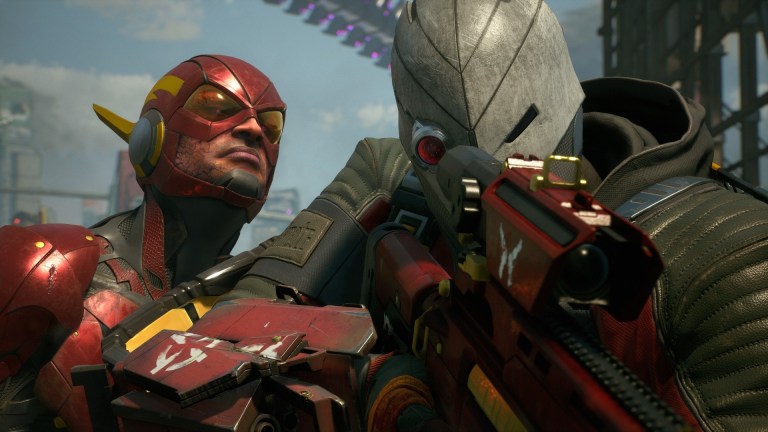Suicide Squad: Kill the Justice League’s Surprising Sales Paint a Grim Picture
WB has finally discussed Suicide Squad: Kill the Justice League's sales, and the news looks bad for the company's long-term gaming projects.

During a recent earnings call, Warner Bros. Discover CFO Gunnar Wiedenfels made one of the first official statements regarding Suicide Squad: Kill the Justice League’s previously mysterious sales. While his statements may not shock those who are aware of the game’s status, they are surprising in terms of what they may say about the future of live service games.
Speaking briefly on the subject, Wiedenfels mentioned that Kill the Justice League’s sales fell “short of our expectations.” Though Wiedenfels did not reveal the exact sales/revenue figures at that time, that’s about as bluntly as you’ll hear an executive from a major company refer to a product’s disappointing performance during such an event.
While the full Kill the Justice League sales figures haven’t been revealed yet, all available information points towards a historic failure. On Steam, the game’s concurrent player count figure peaked at just over 13,000 users, which is far less than what you’d expect to see from a Triple-A new release. For that matter, it’s less than the peak concurrent player count of two notably similar titles: Marvel’s Avengers (31,165 peak players) and Gotham Knights (24,138 players). It’s even lower than the peak user count for certain pieces of creation software supported by Steam such as VTube Studio (14,656 peak users).
The official sales charts aren’t much more encouraging. Kill the Justice’s League’s initial physical sales were far lower than anticipated in the UK, and the game has rarely appeared on either the PlayStation or Xbox sales charts outside of its pre-order period.
Given that Kill the Justice League is charting below Marvel’s Avengers according to most known sales metrics and that Marvel’s Avengers was internally considered to be a massive flop after selling around 3 million copies in about 3 months…well, it would be shocking to learn that Kill the Justice League is doing much better at the moment.
While these figures are surprising in terms of a major new release based on a popular IP from a significant development studio, they are probably a little less surprising to those who have followed Kill the Justice League’s progress up until this point.
Developer Rocksteady Studio’s much-anticipated follow-up to their beloved Batman: Arkham games was met with resistance early on based on its concept alone. That resistance only grew when it was revealed that Kill the Justice League would be a third-person shooter with many live service elements. Behind the scenes, stories of the game’s rocky development (and the notable talent departures they may have led to) paved the way for what turned out to be stunningly negative initial previews of the title and dismal eventual reviews.
So while these sales figures feel like the logical result of the reception to the game thus far, this story will likely not end here. During that same call, Gunnar Wiedenfels noted that Kill the Justice League’s sales have set the company’s gaming division up for what he believes will be a “tough year.” Perhaps that speaks to the amount of money the company spent on Kill the Justice League (its budget is almost certainly considerable given its prolonged development time), but maybe it also says something about WB’s long-term plans.
After all, WB has previously emphasized their desire to turn their library of properties into the kind of ongoing gaming experiences that Kill the Justice League not only failed to deliver but was widely criticized for emphasizing in the first place. Perhaps that speaks to the expectations fans had for developer Rocksteady’s next game, though more and more evidence suggests that such games are no longer the relatively safe cash cows they appeared to be. If WB has already invested significant money in relatively similar projects, then there may not be enough Zaslav tax cuts in the world to save them from what’s coming. At the very least, this seems to be bad news for the already rocky future of Rocksteady.
Incidentally, Hogwarts Legacy (another WB-produced game) became the somewhat surprising best-selling game of 2023 off the strength of its license popularity, strong reviews/word-of-mouth, and narrative-based single-player gameplay that largely eschewed live service elements and notable microtransactions. Though many factors determine a game’s success, the similarities and differences between those two titles’ pedigrees, approaches, and sales/reception certainly feel noteworthy.
